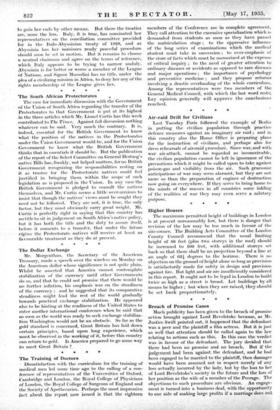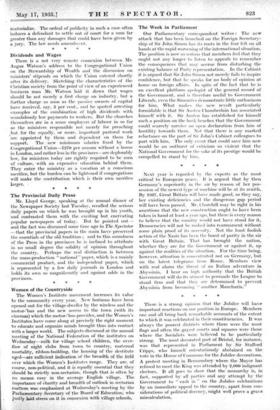* * * *
Breach of Promise Cases
Much publicity has been given to the breach of promise action brought against Lord Revelstoke because, as Mr. Justice Swift pointed out, it happened that the defendant was a peer and the plaintiff a film actress. But it is just as well that- attention should be called again to the law relating to actions such as this. In this case the verdict was in favour of the defendant. The jury decided that there had been no promise and no breach. But if the judgement had been against, the defendant, and he had been engaged to be married to the plaintiff, then damages would have been assessed not in respect • merely of any loss actually incurred by the lady, but by the loss to her of Lord Revelstoke's society in the future and the loss of her position as the wife of a member of the Peerage. The objections to such procedure are obvious. An engage- ment is turned into a business deal, with the opportunity to one side of making large profits if a marriage does not materialize. The ordeal of publicity in such a case often induces a defendant to settle out of court for a sum far greater than any damages that could have been given by a jury. The law needs amendment.











































 Previous page
Previous page